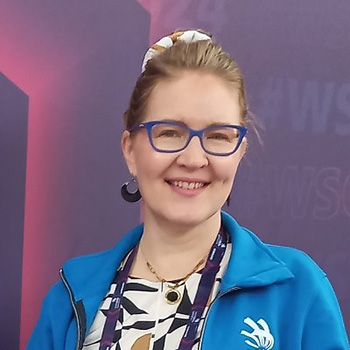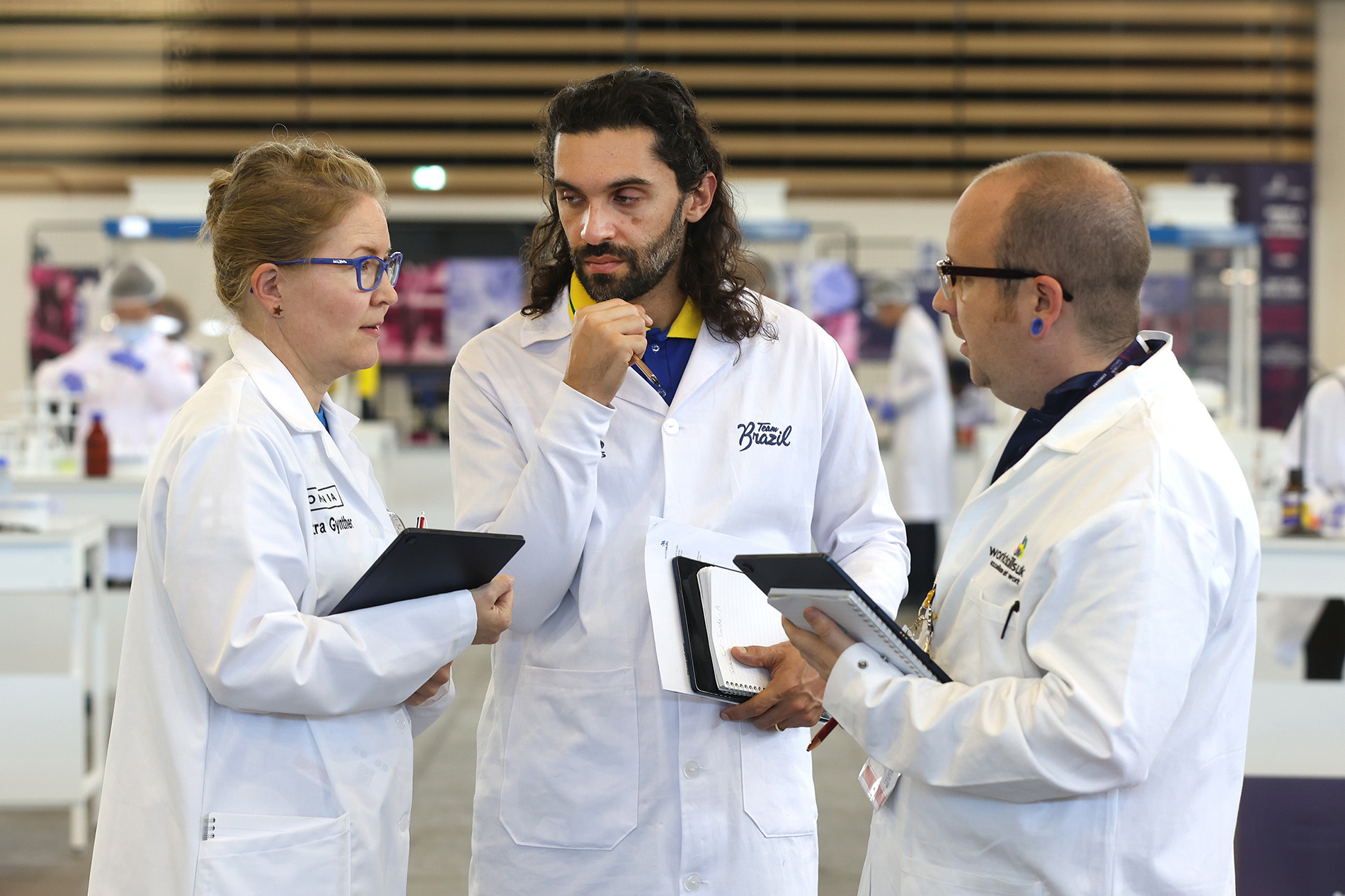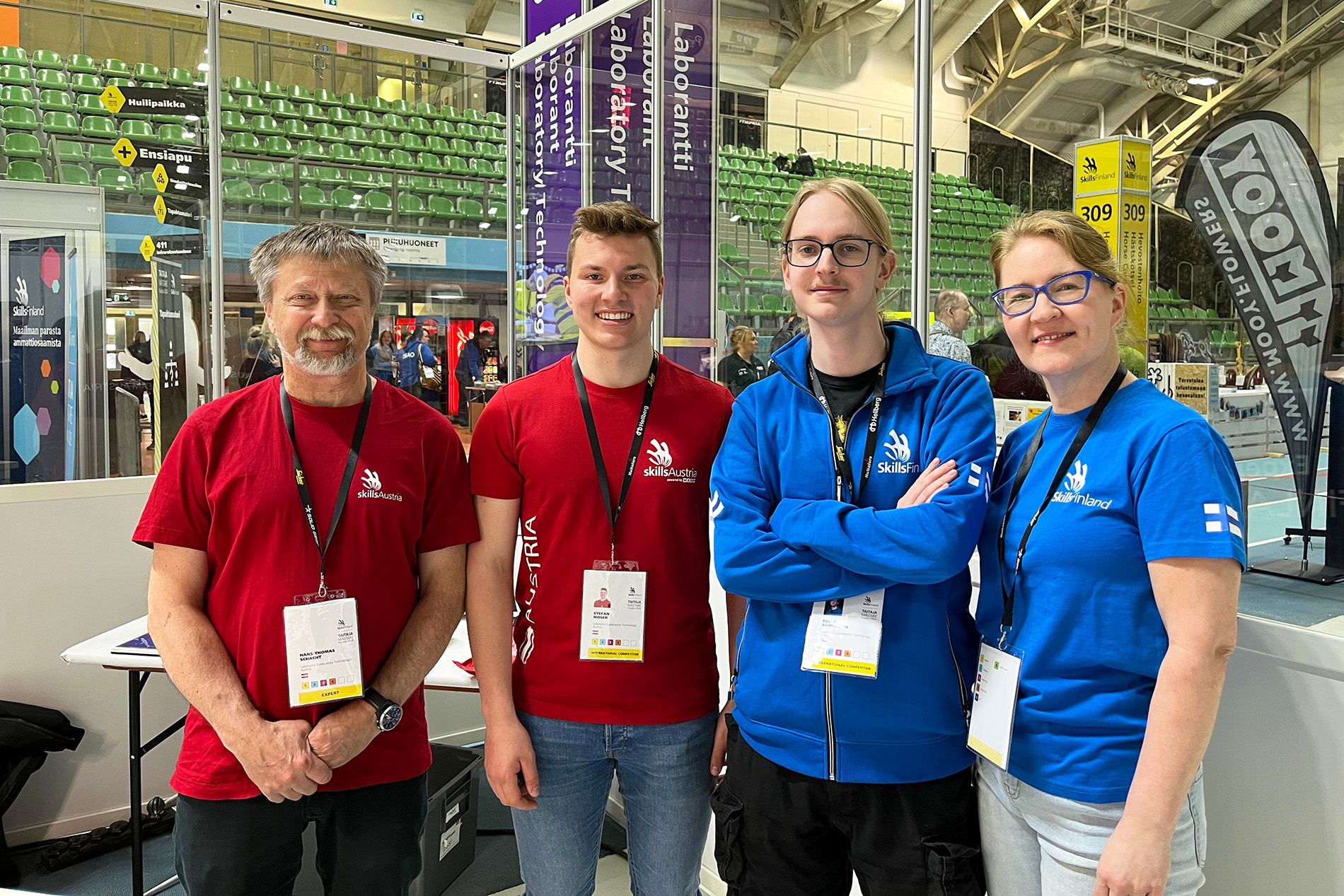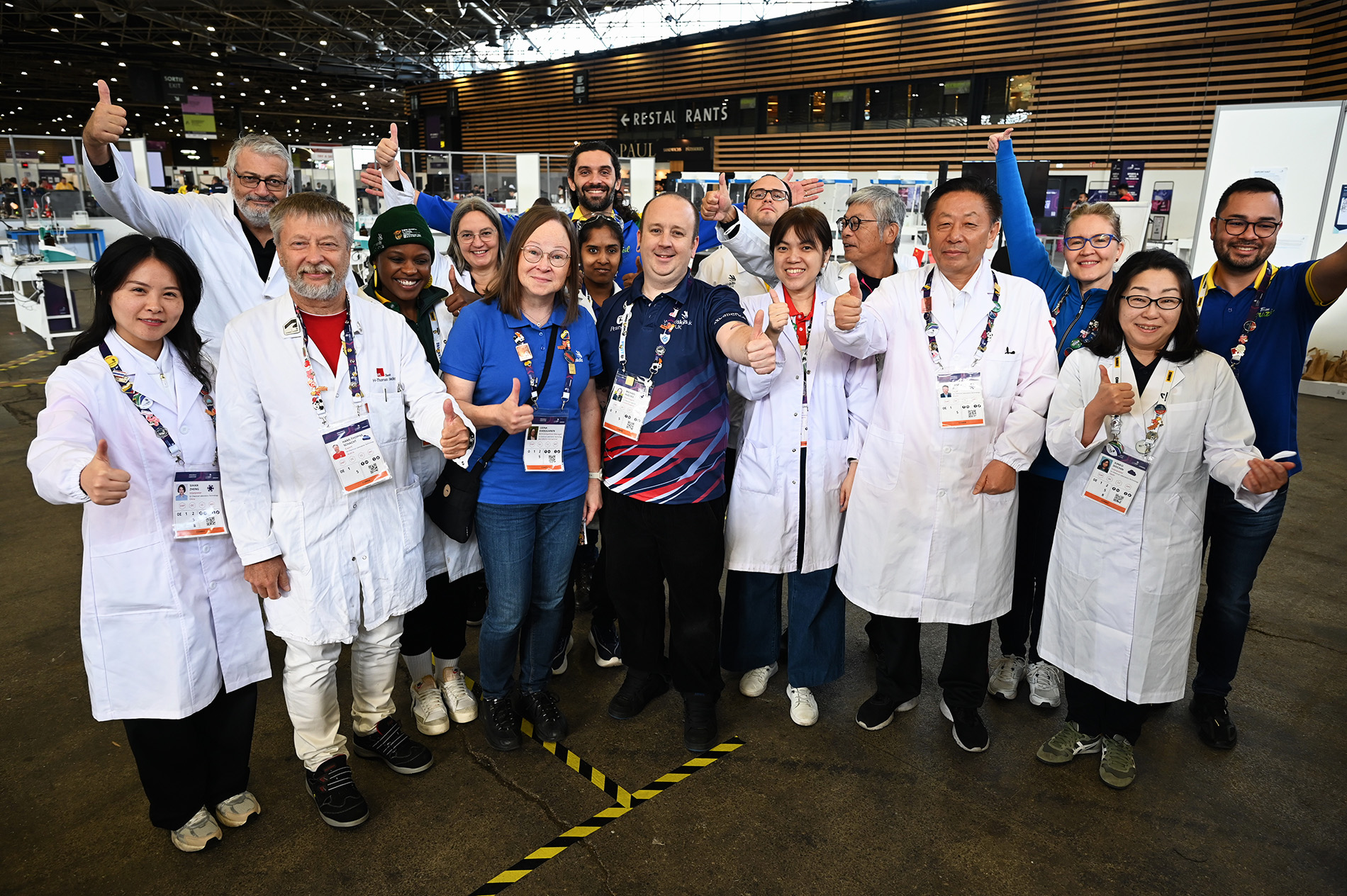First experience as a WorldSkills Expert led to a silver medal
Petra Gynther worked as an Expert for the first time at the WorldSkills Lyon 2024 Competition. In her blog, Petra shares what she learned from the competition, how she balanced her Expert role with her daily job, and the preparation behind Competitor Toivo Särkkinen. The next WorldSkills Expert selection (Team Finland) is open until March 31, 2025.
Petra Gynther
- Laboratory technology teacher at Omnia, the joint authority of education in the Espoo region
- Involved in national skills competition, Taitaja, since 2023, WorldSkills expert in 2024.
- Education: Biotechnologist (MSc), University of Kuopio.
- Hobbies: Enjoys outdoor activities, paddleboarding in summer, and skiing in winter.
We were in the midst of preparing for the Taitaja2023 Espoo Competition when I learned from our Finnish then-Skill Manager about the opportunity to apply to represent Chemical Laboratory Technology at the WorldSkills Competition.
Although I was new to Taitaja activities, I had just familiarised myself with the process. As a support person for our Taitaja Competitors, I found the competition activities inspiring for my own work. When my supervisor and workplace gave their approval, I boldly pursued the Expert role – admittedly, in hindsight, quite unaware of what I was getting myself into.
Challenging but rewarding work
The most educational aspect for me personally was participating in training camps with the national team, attending workshops, and getting to know the WorldSkills process. The experiences gained through the Expert role were incredible: attending national and international competitions and connecting with professionals from various industries and countries.
What an amazing event WorldSkills turned out to be! The atmosphere at the Opening and Closing Ceremonies felt like the Olympics. The Expert role was much more demanding than I had initially imagined, but although the work was challenging, it was also rewarding.
I have a fantastic supervisor who did their best to allocate resources for my Expert role. Of course, during the competition period, I worked more than planned, but thankfully, during the competition week, I was able to focus 100% on the competition.
Being involved in competition activities is an excellent way to exchange knowledge about vocational education practices between different institutions and countries. The competitions also provide numerous new work instructions and practical examples that we have been able to incorporate into our basic education. Taitaja activities foster connections between different educational institutions, enhancing communication and the exchange of ideas.

Expert work is conducted in international cooperation. Pictured: Petra with her Expert collegues from Brazil and the UK. Photo: WorldSkills.
Practicing at Taitaja boosted confidence
During the training period of our Finnish Competitor Toivo Särkkinen (Tredu), we formed a small training team: in addition to me, Skill Manager Sanna Matinaho (Omnia) and Trainer Ari Hipeli (Tredu). We held joint Teams meetings to plan the training schedule and content and discuss relevant topics. As an Expert, I had access to the WorldSkills forum and infrastructure list, which helped us anticipate the upcoming competition tasks.
I visited Toivo’s educational institution and participated in the assessment of vocational competence demonstrations. Additionally, I served as a visiting Expert at the UK's national skills competition.
I organised an international practice competition alongside Taitaja2024, where we invited a Competitor from Austria. This provided an opportunity to test each other’s skill levels. The experience taught us a great deal about evaluation criteria and how the CIS system works. At the WorldSkills awards ceremony, it was a fantastic moment when both our competitors medaled – Finland won silver and Austria won bronze.
Our training focused on previous competition tasks, fundamental laboratory skills, and work methods. Toivo also gained routine and confidence through summer work experience. The actual competition tasks were kept secret, so instructions had to be quickly absorbed during the competition.

Austrian Expert Hans-Thomas Schacht (left) and Competitor Stefan Moser arrived in May to train at Taitaja with Toivo Särkkinen and Petra Gynther. At WorldSkills, Stefan won bronze and Toivo won silver. Photo: Skills Finland.
The Competition week ended with a silver medal
As an Expert, I had 15 minutes every morning to speak with the Competitor before they had to manage on their own. I believe one of our key strengths was the ability to stay focused on our own work, executing tasks carefully without rushing. We also made minor strategic adjustments in time management as the competition progressed.
A crucial aspect before the Competition was familiarising ourselves with the equipment and environment. In our category, nearly all equipment listed on the infrastructure list turned out to be from different manufacturers than expected. We discussed potential choices the Competitor might need to make, and it was beneficial that we could test how various tools and devices functioned. Moving forward, I would emphasise understanding methods and problem-solving skills in training.
We learned about Toivo’s silver medal only during the Closing Ceremony’s. Our skill was among the first to be announced, so we barely had time to feel nervous before three flags appeared on the giant screen – one of them Finland’s! Then came the moment of suspense – silver for Finland! For a moment, I was completely stunned. The atmosphere was incredible – all the Finns jumped up, waving Finnish flags and cheering "Suomi, Suomi!" The smiles lasted all night.

Experts and organisers in the Chemical Laboratory Technology skill at WorldSkills 2024. Photo: WorldSkills.
Petra’s tips for new Experts
- There are many topics and details to go through in both competition and training – start studying them well in advance (seriously, don’t leave it to the last minute!).
- Many abbreviations and terms are used during the competition, so it’s important to familiarise yourself with them beforehand – everything is communicated in acronyms.
- I wish I had practiced using the CIS evaluation tablet more; it would have made the first evaluation day much smoother.
- During the competition, there is little time to communicate with your competitor and training team, but a shared WhatsApp group is useful for quick messaging.
- Energy and motivation come especially from other Finnish Experts – they experience everything with you. It will be intense, crazy, unique, and amazing. A once-in-a-lifetime experience that I wouldn’t trade for anything.